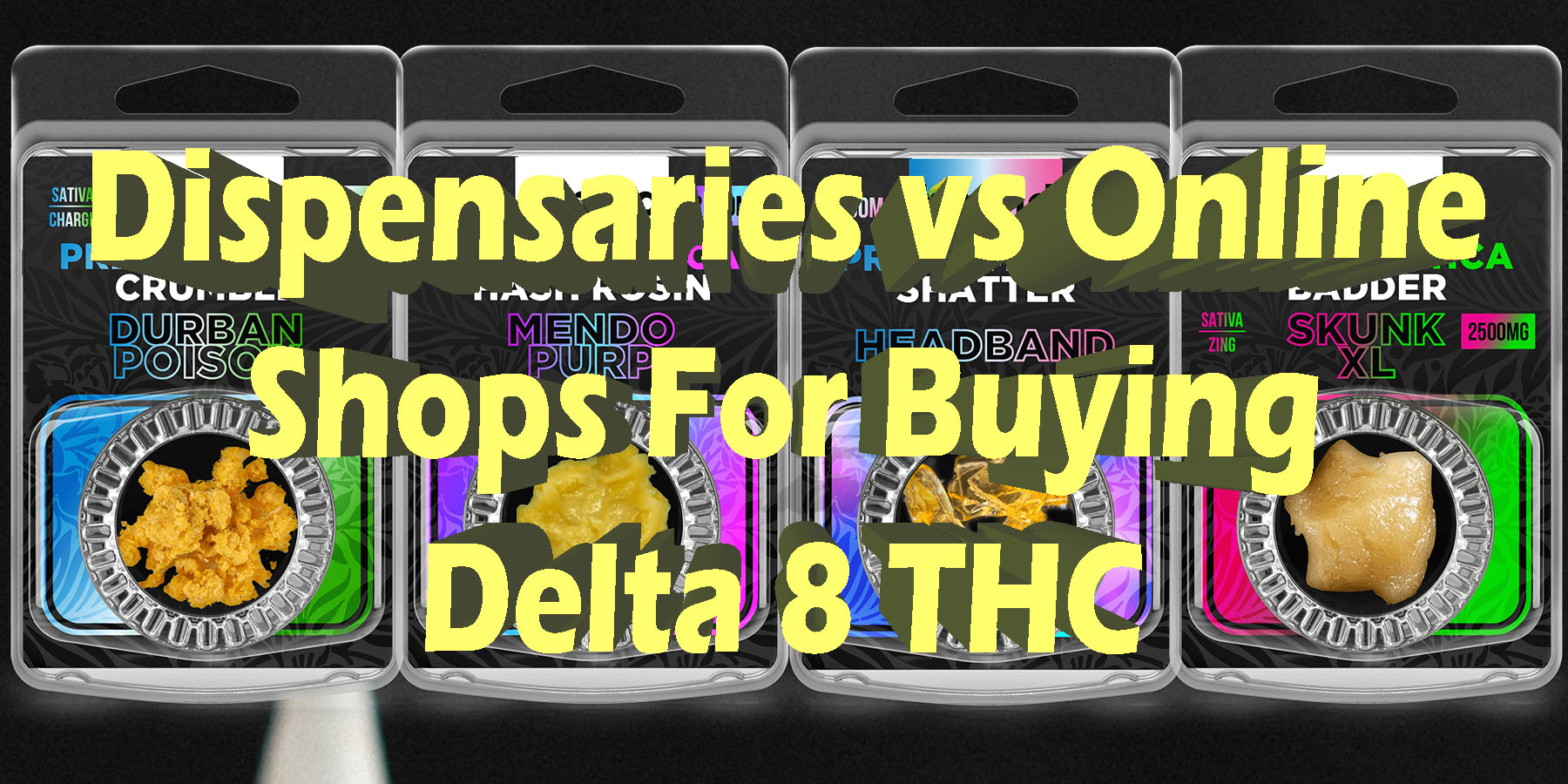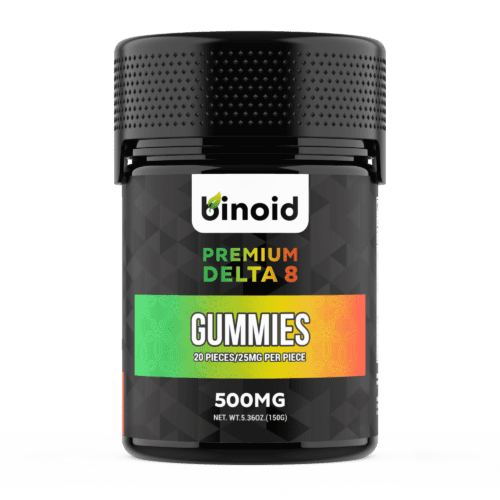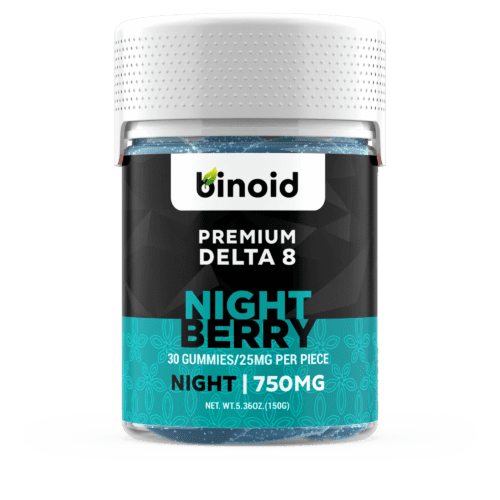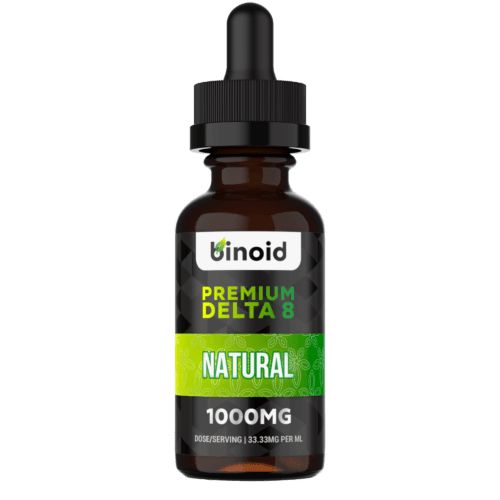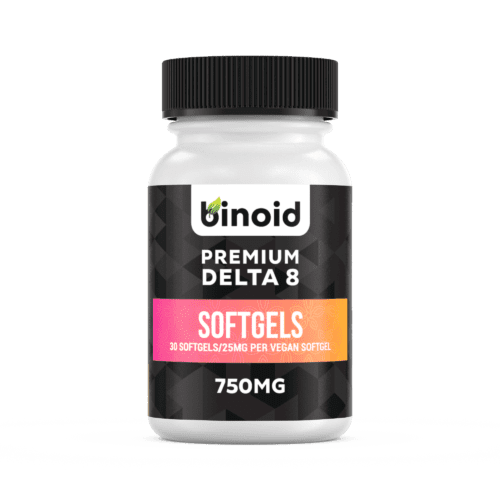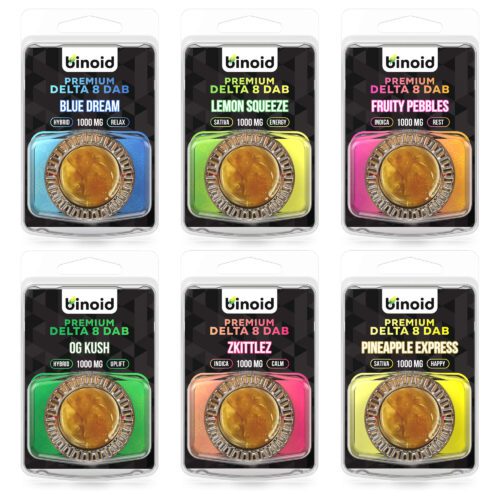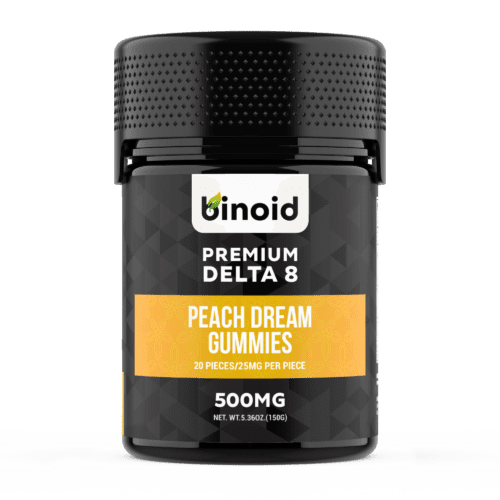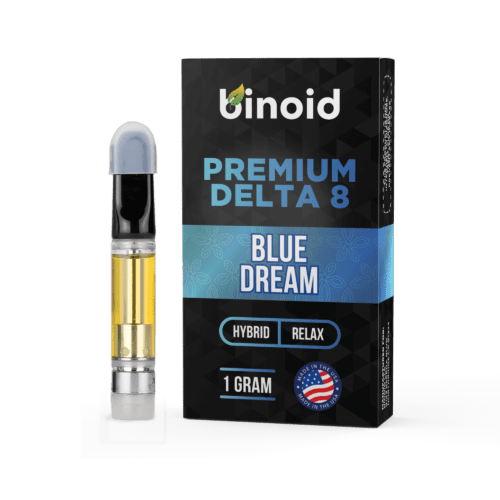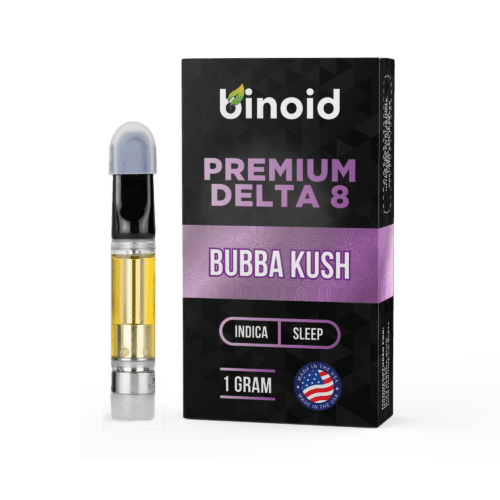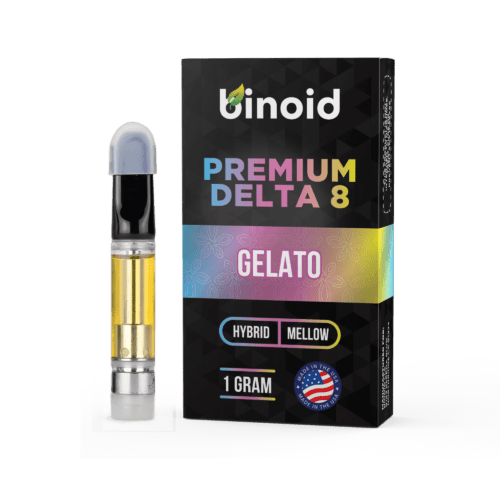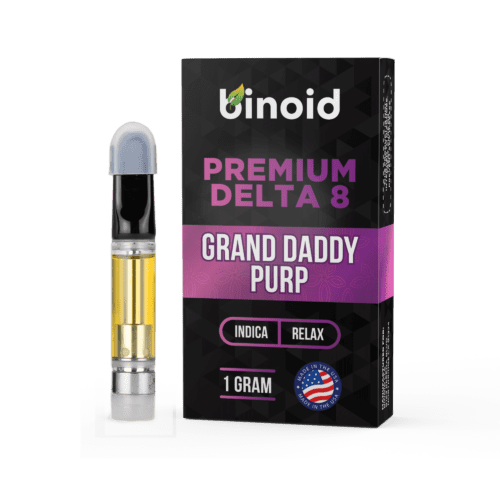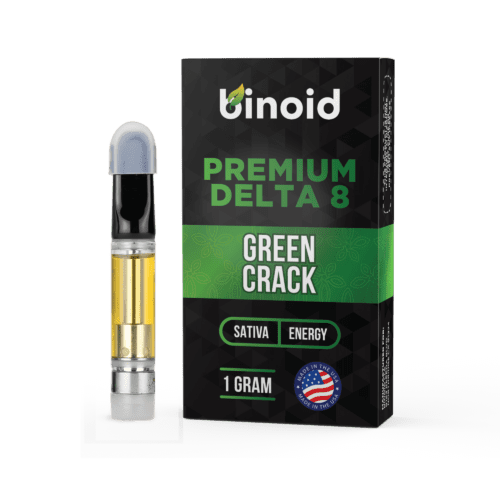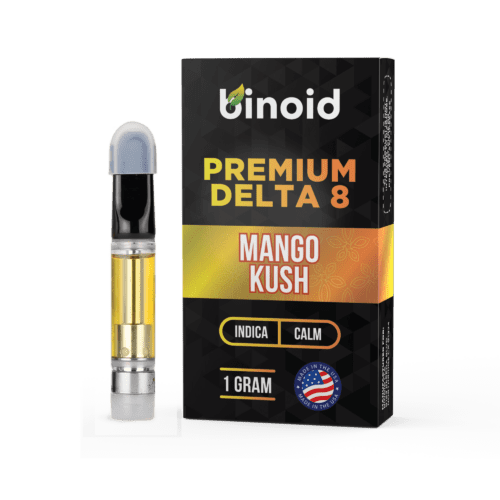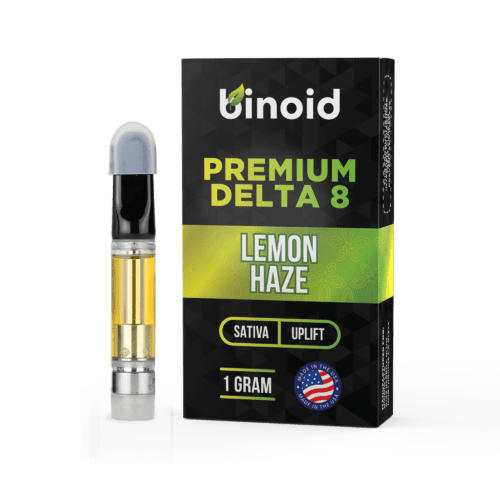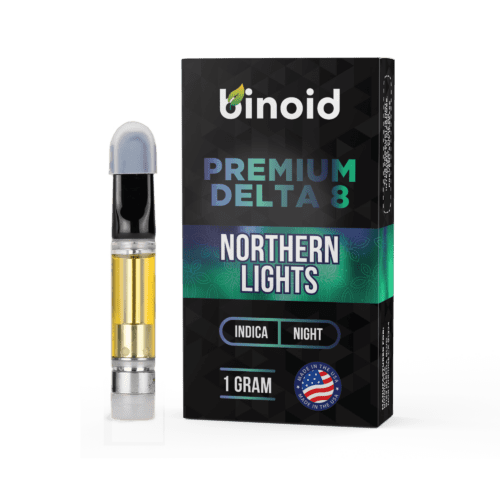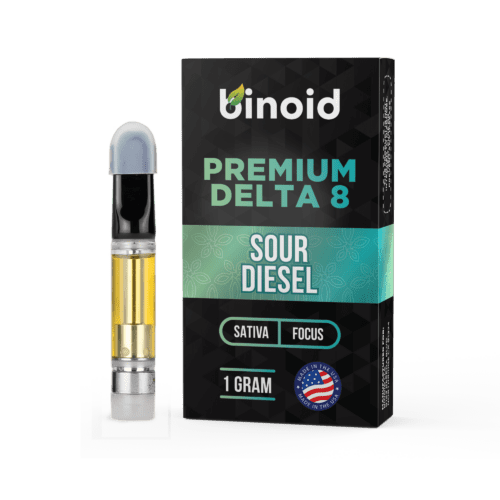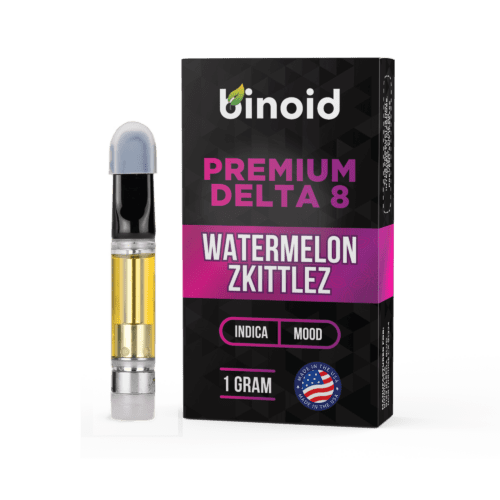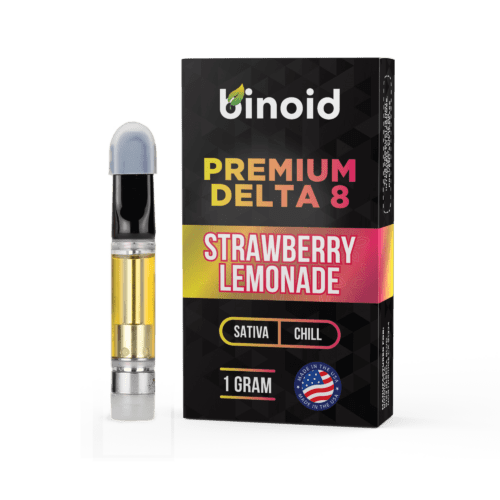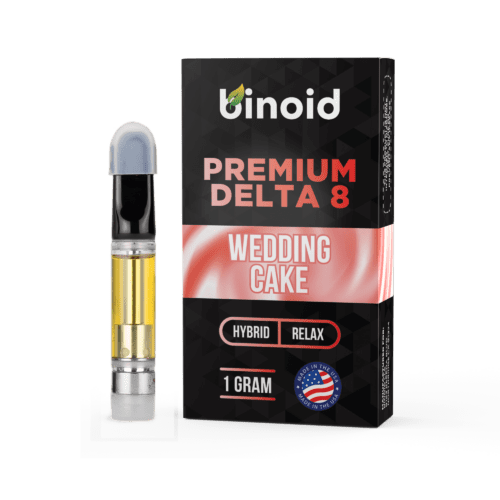The ever-evolving tapestry of the cannabinoid market consistently introduces consumers to novel compounds and purchasing avenues. Among these, Delta 8 THC has carved out a significant niche, sparking curiosity and presenting an alternative experience for many across the United States. As individuals seek to explore the unique characteristics of Delta 8 THC, they invariably encounter a pivotal question: is it more advantageous to source these products from a traditional, state-licensed cannabis dispensary or through the increasingly accessible realm of online cannabis and hemp retailers?
Both pathways offer their own distinct benefits and considerations. A comprehensive understanding of these differences is essential for making an informed choice that aligns with one’s personal preferences, accessibility, and specific needs. That’s why this exploration is designed to illuminate these options, providing a clear and balanced perspective on what each purchasing environment entails, without making unsubstantiated claims, thereby empowering you to navigate your Delta 8 THC journey with confidence.
To Buy Delta 8 THC Products Click Here
Recommended products
Getting to Know Cannabis Dispensaries and Online Cannabis/Hemp Shops and Their Purposes
Before embarking on a detailed comparison for the acquisition of Delta 8 THC, it’s beneficial to establish a foundational knowledge of the two principal retail environments where such products are commonly found. Both dispensaries and online shops serve the purpose of providing consumer access to cannabis and hemp-derived products, but they operate under different models, cater to potentially different consumer expectations, and offer unique interactive experiences. Each has evolved within the complex regulatory framework governing cannabis and hemp in the USA, and their roles continue to be defined by both legal parameters and market forces.
Understanding Cannabis Dispensaries and Their Purpose
A cannabis dispensary is a physical, state-licensed retail location authorized to sell cannabis products, which may include marijuana-derived and, in some cases, hemp-derived items, depending on state and local regulations. The primary purpose of a dispensary is to provide a controlled and regulated environment for consumers to access these products legally and safely. Stepping into a dispensary, one typically encounters a secure facility, often with a waiting area and a separate sales floor. The design emphasizes security and compliance, with measures like ID verification at the entrance, surveillance systems, and secure product storage being standard. This controlled environment is a direct response to the regulatory scrutiny under which these establishments operate.
The interior of a dispensary is usually designed to be both welcoming and informative. Products are often displayed in locked cases, and customers typically interact with “budtenders” or sales associates who are expected to have knowledge about the various products offered. These staff members can guide consumers through different strains, potencies, and consumption methods, offering personalized recommendations based on the customer’s stated preferences or desired experiences, such as seeking a sense of bliss or enhanced focus. The atmosphere can range from a clinical, pharmacy-like setting to a more boutique, upscale retail experience, reflecting the brand identity of the dispensary and the target clientele it aims to attract. The emphasis is often on education and guided selection within a secure, face-to-face setting.
Beyond sales, dispensaries often see their purpose as being community hubs and centers for cannabis education. Many host informational events, provide literature on responsible consumption, and strive to destigmatize cannabis use by fostering an open and professional environment. They are also key players in ensuring product safety within the legal markets they serve, as they are typically required to source products from licensed producers and cultivators who adhere to state-mandated testing for potency and contaminants. This gatekeeper role is crucial in markets where regulatory oversight is paramount to consumer protection and the legitimacy of the industry as a whole.
Finally, the existence and operation of dispensaries are deeply intertwined with state-specific cannabis programs. For medical marijuana dispensaries, their purpose includes verifying patient eligibility through medical marijuana cards and ensuring that patients can obtain products that align with their documented needs. For adult-use or recreational dispensaries, the purpose is to provide legal access to cannabis for adults over 21, contributing tax revenue to the state and attempting to curtail the illicit market. Their physical presence makes them tangible points of access and regulation within the broader cannabis ecosystem, serving as the frontline of legal cannabis commerce in numerous states.
Recommended products
Understanding Online Cannabis/Hemp Shops and Their Purpose
An online cannabis or hemp shop is a digital storefront that allows consumers to browse, select, and purchase cannabis or hemp-derived products via the internet, with the items subsequently shipped directly to their location. The primary purpose of these online shops is to offer convenience, a wide selection, and often utilize competitive pricing structures by leveraging the efficiencies of e-commerce. These platforms can range from websites operated by multi-brand retailers, offering products from various producers; to direct-to-consumer sites run by companies that cultivate, manufacture, and sell their own branded product lines. This model expands accessibility, particularly for individuals who may not live near a physical dispensary or prefer the discretion and ease of shopping from home.
The structure of an online cannabis/hemp shop is built around its website or digital platform. This includes detailed product pages with descriptions, images, customer reviews, and often, access to third-party lab test results (Certificates of Analysis (CoAs)) that verify cannabinoid content and purity. Unlike the guided, in-person experience of a dispensary, online shops empower consumers to conduct their own research and make selections at their own pace.
They often feature educational blogs, FAQs, and customer support through chat, email, or phone to assist with queries. The emphasis is on providing comprehensive information digitally, allowing consumers to become well-informed before making a purchase, potentially leading to experiences of clarity and euphoria with their chosen products.
A significant aspect of the purpose behind many online hemp shops, is their ability to operate across state lines, adhering to federal laws such as the 2018 Farm Bill. This bill federally legalized hemp and hemp-derived cannabinoids, as long as the final product contains no more than 0.3% Delta-9 THC by dry weight. This has enabled online retailers to reach a broader national audience in the USA, offering products that might not be available locally or in states with more restrictive cannabis laws. Their purpose, therefore, also includes navigating the complex legal landscape to provide federally compliant products to a wide consumer base.
Plus, online cannabis and hemp shops often aim to foster a sense of community and brand loyalty through digital engagement. This can involve loyalty programs, email newsletters with exclusive offers and product updates, and active social media presences. For brands that produce their own products, the online shop serves as a crucial direct interface with their customers, allowing them to build a brand narrative, gather feedback, and cultivate a dedicated following. They strive to offer a seamless and trustworthy purchasing experience, from user-friendly website navigation and secure payment processing to discreet packaging and reliable shipping, ensuring that the journey from click to delivery is smooth and satisfactory for the consumer.
Recommended products
Exploring the Pleasant Cannabinoid Known as Delta 8 THC
Delta-8-tetrahydrocannabinol, commonly referred to as Delta 8 THC, has gracefully emerged from the complex spectrum of cannabinoids found in the cannabis plant, capturing significant attention for its unique properties and often described as offering a more “pleasant” or manageable psychoactive experience compared to its more famous cousin, Delta 9 THC. While it is chemically similar to Delta 9 THC, Delta 8 THC interacts with the human body’s endocannabinoid system (ECS) in a slightly different way, leading to effects that many users find to be less intense, more clear-headed, and often accompanied by a sense of calm and relaxation. Its rise in popularity is partly due to its unique legal standing, often derived from federally legal hemp, making it accessible in many areas where Delta 9 THC remains restricted.
The history of Delta 8 THC, while not as extensive as that of Delta 9 THC, dates back to the mid-20th Century. It was first partially synthesized in 1941 by Roger Adams and his team at the University of Illinois, who were pioneers in cannabis research. However, its complete synthesis and more thorough scientific investigation, including its identification as a minor natural phytocannabinoid in cannabis, occurred later.
For many years, Delta 8 THC remained a relatively obscure cannabinoid, overshadowed by the more abundant and potent Delta 9 THC. Its recent surge into the consumer market is largely a consequence of advancements in cannabinoid extraction and conversion techniques, coupled with the legal framework established by the 2018 Farm Bill in the United States. This bill legalized hemp and hemp-derived compounds, inadvertently creating a pathway for cannabinoids like Delta 8 THC (often converted from hemp-derived CBD) to be manufactured and sold, provided the final product contains no more than 0.3% Delta 9 THC.
From a scientific and chemical perspective, Delta 8 THC is an isomer of Delta 9 THC, meaning they share the same chemical formula (C21H30O2) but differ in their molecular structure. The key difference lies in the location of a specific double bond in their carbon chain; in Delta 8 THC, this bond is on the eighth carbon atom, while in Delta 9 THC, it is on the ninth. This seemingly minor structural variance significantly influences how the molecule binds to the CB1 receptors in the brain and nervous system. Delta 8 THC exhibits a lower binding affinity for CB1 receptors compared to Delta 9 THC, which is believed to be the primary reason for its reduced psychoactive potency. Most commercially available Delta 8 THC is not directly extracted from hemp in large quantities due to its natural scarcity; instead, it is typically synthesized from hemp-derived cannabidiol (CBD) through a chemical conversion process known as isomerization.
The effects of Delta 8 THC are often described by users as being qualitatively different from those of Delta 9 THC, frequently characterized as providing a smoother, more clear-headed, and less anxiety-provoking experience. Many users report a pleasant sense of uplifting mood, mild euphoria, relaxation, and enhanced focus without the intense cognitive impairment or potential for paranoia that some individuals associate with higher doses of Delta 9 THC.
While psychoactive, its potency is generally considered to be roughly half to two-thirds that of Delta 9 THC. This makes it an appealing option for individuals seeking a milder psychoactive effect, or for those who are more sensitive to Delta 9 THC. Studies suggest that, like other cannabinoids, Delta 8 THC may also possess properties that contribute to a sense of well-being, though more research is needed to fully understand its applications. The overall experience can still vary based on dosage, individual tolerance, and product formulation.
Recommended products
Delta 8 THC has found its way into a diverse and expanding array of product types and delivery methods, offering consumers numerous ways to experience its unique effects, all while generally aiming to comply with federal hemp regulations.
Flower: Most commonly consists of high-quality hemp flower (which is naturally rich in CBD and contains less than 0.3% Delta 9 THC) that has been skillfully coated or infused with Delta 8 THC distillate. This process allows consumers to enjoy the traditional experience of smoking or vaporizing flower while benefiting from the specific effects of Delta 8 THC. It’s available in various forms, including loose buds from indoor or outdoor cultivation, smaller, more budget-friendly “flower smalls,” and convenient pre-rolls. For those seeking a more concentrated experience, Delta 8 Moonrocks – hemp buds dipped in Delta 8 THC distillate and then rolled in kief – are also popular, offering enhanced potency and a unique aroma and flavor profile.
Vapes: Vaping remains one of the most popular methods for consuming Delta 8 THC due to its rapid onset of effects, typically felt within minutes. These products contain Delta 8 THC distillate, often blended with terpenes for flavor and to modulate effects, in either pre-filled cartridges compatible with standard vape pen batteries or in convenient, all-in-one disposable vape pens. Vaping allows for controlled dosing and provides a discreet way to experience the clear-headed uplift or relaxation often associated with Delta 8 THC, making it suitable for use throughout the day for some individuals seeking focus or a sense of calm.
Edibles: These offer a tasty, discreet, and long-lasting way to experience the cannabinoid’s effects. This category includes a wide variety of products such as gummies in myriad flavors, hard candies, breath-freshening mints, and an assortment of baked goods like cookies or brownies. When Delta 8 THC is ingested, it undergoes metabolism in the liver, which can result in a slightly different and often more potent effect for some individuals compared to inhalation, though still generally milder than Delta 9 THC edibles. The effects from edibles are slower to onset, typically taking 30 minutes to two hours, but their duration is significantly longer, providing a sustained experience of bliss or tranquility.
Drinks & Beverages: An increasingly innovative category, Delta 8 THC-infused drinks and beverages provide a refreshing and socially adaptable way to consume this cannabinoid. Products range from sparkling seltzers and sodas to fruit-flavored shots, teas, and powdered drink mixes that can be added to water. These beverages offer an alternative to traditional edibles, sometimes with a slightly faster onset time depending on the formulation and individual metabolism. They allow controlled dosing and can be a delightful way to unwind or enhance social gatherings, providing the characteristic pleasant effects of Delta 8 THC in a palatable liquid form.
Concentrates: For more experienced users seeking higher potency, Delta 8 THC concentrates are available. These products, which include forms like wax, shatter, and crumble, are highly concentrated forms of Delta 8 THC distillate. They are typically consumed via dabbing using a dab rig or a specialized concentrate vaporizer, which heats the material to a high temperature for inhalation. Due to their high concentration, Delta 8 THC concentrates deliver strong and immediate effects, offering a powerful experience of euphoria and relaxation that is more intense than other consumption methods but still often perceived as clearer than similar Delta 9 THC concentrates.
Tinctures: Providing a versatile and controllable method of consumption, they consist of Delta 8 THC distillate infused into a carrier oil (such as MCT, hemp seed, or olive oil) and are typically administered sublingually (under the tongue) using a dropper. This allows for relatively rapid absorption into the bloodstream and an onset of effects that is quicker than edibles. Tinctures offer the advantage of precise dosing, as users can easily measure and adjust the amount consumed to achieve their desired level of effect, whether it’s a mild uplift for focus or a larger dose for more pronounced relaxation.
Capsules/Tablets: Supply a highly convenient, discreet, and precisely dosed method for oral consumption. Each capsule or tablet contains a pre-measured amount of Delta 8 THC, eliminating any guesswork and ensuring consistent dosing with every use. Similar to edibles, the effects have a delayed onset (30 minutes to 2 hours) as the Delta 8 THC is processed through the digestive system, but they tend to be long-lasting. This makes them a suitable option for individuals seeking sustained effects throughout the day for a consistent sense of well-being or clarity, without the need for inhalation or measuring liquids.
Topicals: Delta 8 THC is also incorporated into topical products such as creams, lotions, balms, and salves, almost invariably in combination with CBD and other beneficial hemp compounds. When applied to the skin, these cannabinoids interact with local cannabinoid receptors in the epidermis and dermis. They are generally not psychoactive in this form, as they do not typically enter the bloodstream. Instead, Delta 8 topicals are used for targeted application, with users seeking to harness the potential localized soothing and comforting properties for specific areas of the body.
Recommended products
Why Can Delta 8 THC Be Found at Either a Dispensary or an Online Shop?
The presence of Delta 8 THC products in both state-licensed dispensaries and the burgeoning online marketplace is a direct result of intricate interpretations of the 2018 Agriculture Improvement Act (the Farm Bill) and the subsequent, often varied, regulatory responses at the state level. The Farm Bill federally legalized hemp and defined it as Cannabis sativa L. containing no more than 0.3% Delta-9 THC by dry weight. Crucially, it also legalized hemp “derivatives, extracts, cannabinoids, isomers, acids, salts, and salts of isomers” with no specific mention of Delta 8 THC, leading many to interpret that Delta 8 THC derived from compliant hemp (often through chemical conversion of hemp-derived CBD) is federally legal. This interpretation became the bedrock upon which the online Delta 8 THC market was built, allowing manufacturers to produce and ship these products to many states.
However, the legal status of Delta 8 THC is far from uniformly accepted and is considerably more complex than that of CBD or even hemp-derived Delta 9 THC (which is legal if the D9 itself is <0.3%). While it may be derived from federally legal hemp, its psychoactive nature and the fact that it is often created through chemical synthesis from CBD have raised concerns among federal agencies and state lawmakers.
This has led to a fractured legal landscape: some states explicitly permit Delta 8 THC, others have banned or heavily restricted its sale and possession (classifying it similarly to Delta 9 THC from marijuana), and yet others remain in a state of legal ambiguity. This patchwork of regulations means that while online retailers can ship to states where Delta 8 THC remains permissible, they face an ever-changing list of restricted locations.
Dispensaries in states with legal adult-use or medical marijuana programs might also carry Delta 8 THC products. They may do so to offer a wider range of psychoactive alternatives, particularly if Delta 8 THC is perceived as milder than Delta 9 THC, or to meet consumer demand where state law does not prohibit its sale alongside marijuana-derived products. Thus, its availability in both channels reflects this ongoing tension between federal interpretations, state-level legislative actions, and consumer demand.
Breaking Down the Delta 8 THC Buying Matchup: Dispensaries vs. Online Shops
Choosing the optimal source for your Delta 8 THC products requires a thoughtful evaluation of several key factors, encompassing aspects like product variety, pricing structures, overall convenience, and the kind of shopping experience you, as an individual, find most appealing. Both established dispensaries and the rapidly expanding world of online retailers present compelling cases, yet they inherently cater to different consumer priorities and are characterized by a unique set of advantages and potential disadvantages. A deeper dive into what each of these contenders brings to the table is essential for consumers to make an educated, well-informed choice that perfectly suits their specific circumstances and purchasing preferences within the dynamic and often complex landscape of cannabinoid accessibility in the USA.
Contender #1: Dispensaries
Dispensaries function as the traditional, physically established, and state-regulated retail outlets for a range of cannabis products. In states that have enacted medical or adult-use marijuana programs, these establishments are often the primary, if not sole, legal source for higher-THC cannabis. While their main focus is typically on marijuana-derived Delta 9 THC products, many dispensaries also stock hemp-derived cannabinoids, which can include Delta 8 THC, especially if state law permits and there is consumer demand.
Stepping into a dispensary means entering a secure, controlled environment specifically designed for cannabis retail, featuring mandated security protocols, curated product displays, and the presence of staff members, or “budtenders”, who are generally expected to offer guidance. The experience is direct and tangible; customers can often see product packaging and have the invaluable opportunity for immediate, face-to-face conversations with knowledgeable individuals who can discuss the nuances of Delta 8 THC, compare it to other cannabinoids, and help guide choices based on desired experiences, such as seeking a clear-headed sense of bliss or gentle euphoria.
The operational milieu within any dispensary is profoundly shaped by the specific regulations of the state in which it is located. These state-level rules dictate virtually every aspect of the business, from initial licensing requirements and stringent inventory tracking systems (often referred to as “seed-to-sale” tracking) to what is permissible in terms of marketing, advertising, and the procedures for sales transactions. This rigorous regulatory oversight is a fundamental characteristic of the dispensary model, primarily intended to ensure consistent product safety and quality, strictly prevent access by underage individuals, and maintain unwavering compliance with all applicable local and state laws.
For many consumers, particularly those who might be new to psychoactive cannabinoids like Delta 8 THC or individuals who have specific wellness goals or sensitivities, the ability to engage directly with a budtender—to ask detailed questions about product origins, cannabinoid potencies, terpene profiles, and suggested usage—can be exceptionally beneficial. This personalized, in-person service, combined with the significant advantage of being able to leave the premises with the purchased products immediately, forms a substantial part of the appeal of buying Delta 8 THC from a dispensary, especially for those who place a high value on a direct, guided purchasing journey and the peace of mind that can come from acquiring products from a state-licensed and regularly inspected retail source.
Recommended products
Pros & Cons
When evaluating dispensaries as a potential source for your Delta 8 THC products, it’s essential to meticulously consider both their inherent strengths and their limitations. The very nature of their physical, state-regulated existence intricately shapes these aspects, offering a distinct array of benefits alongside some unavoidable drawbacks, particularly when contrasted with the convenience and reach of the digital marketplace.
Pros:
Instant Product Availability: The most significant advantage is the ability to select and take home your Delta 8 THC products on the same day of purchase, completely bypassing any shipping delays. This is ideal for consumers who value immediate access or have an urgent desire to obtain their products.
Direct, In-Person Expert Guidance: Dispensary budtenders can provide tailored recommendations in real-time, answering specific questions about various Delta 8 THC products, their potential for inducing states like euphoria or focused clarity, and appropriate consumption methods based on their product training and experience.
Potential for Visual Product Assessment (Packaging): Depending on state rules and dispensary policies, customers might be able to visually inspect the packaging of Delta 8 THC products before committing to a purchase, which can aid in assessing packaging integrity or confirming product details.
Contribution to Local Economy: Purchasing from a local dispensary often means directly supporting businesses within your own community, which in turn helps create local jobs and contributes valuable tax revenue to your city and state, often earmarked for public services.
Regulated Environment (State-Specific): Products sold in licensed dispensaries typically operate under a state-mandated regulatory framework, which may include testing for potency and contaminants, offering a baseline of quality assurance, though the specifics for hemp-derived Delta 8 THC can vary.
Opportunities for Structured Education: Many dispensaries make an effort to educate their customers about responsible cannabinoid use, the science behind compounds like Delta 8 THC, and the nuances of different product categories, fostering a more informed consumer.
Tangible and Secure Retail Experience: For individuals who prefer the traditional retail model, the physical environment of a dispensary, with its direct human interaction and controlled, secure setting, provides a more conventional and often reassuring shopping journey.
Cons:
Geographic and Legal Accessibility Barriers: Dispensaries are physically located and only operate in states with legal cannabis programs; even then, their distribution might be limited, potentially posing an inconvenience for those in rural areas or in states where Delta 8 THC’s legal status is unfavorable for dispensaries to stock.
Higher Operational Costs May Result in Higher Prices: The expenses associated with maintaining a brick-and-mortar store—including rent, utilities, staffing, robust security systems, and comprehensive regulatory compliance—contribute to higher overheads, which can often translate into increased retail prices for Delta 8 THC products compared to many online vendors.
Fixed and Restricted Operating Hours: Unlike the 24/7 availability of online e-commerce sites, physical dispensaries have set business hours, meaning purchases can only be made during specific times, which may not always align with a consumer’s personal schedule or immediate needs.
Potentially Limited Selection of Delta 8 Specific Brands: While a dispensary might offer a wide array of general cannabis products, its selection of diverse Delta 8 THC brands and product types, particularly those from national online-focused hemp companies, may be narrower compared to specialized online retailers who focus heavily on hemp-derived cannabinoids.
Recommended products
Contender #2: Online Shops
Online cannabis and hemp shops have rapidly gained prominence, serving as a highly convenient digital gateway to an exceptionally broad array of Delta 8 THC products, readily accessible from virtually any location equipped with an internet connection. These e-commerce platforms largely predicate their operations on the legal framework surrounding hemp-derived products, as interpreted from the 2018 Farm Bill. This allows them, in many instances, to ship Delta 8 THC items (typically derived from hemp CBD and containing less than 0.3% Delta 9 THC) across numerous state lines, though this is highly dependent on the evolving laws of each specific destination state.
This online model inherently prioritizes unparalleled consumer convenience, discreet purchasing and delivery, and frequently offers access to a significantly wider selection of brands, product formulations, and potencies than is commonly found within the inventory of a single physical retail store. Consumers can effortlessly browse through extensive digital catalogs, meticulously compare different Delta 8 THC products and their respective prices from a multitude of competing brands, and delve into highly detailed product information, including readily accessible third-party lab reports, all from the supreme comfort and cherished privacy of their own homes.
The experience of shopping for Delta 8 THC via online channels is predominantly self-directed, a feature that empowers users to conduct their own thorough research at their own pace and make well-informed purchasing decisions without facing the potential for perceived pressure or the inherent time constraints that can sometimes characterize an in-person retail interaction. Many leading online shops further enrich this user-centric experience by providing a wealth of valuable supplementary content. This often includes regularly updated informative blogs, detailed educational articles delving into the science and effects of cannabinoids like Delta 8 THC (such as its potential to foster a sense of clear-headedness or bliss), and transparent, unedited customer reviews that offer crucial peer-to-peer insights and product experiences.
While online shopping naturally lacks the immediate, face-to-face guidance that a dispensary budtender can offer, reputable online retailers almost invariably provide robust and responsive customer support services through various accessible channels, including live website chat, dedicated email support, and direct telephone lines.
Not to mention, the intensely competitive nature of the online marketplace frequently translates into more aggressive and consumer-friendly pricing strategies, the common availability of promotional discounts, and attractive customer loyalty programs, rendering online shops a particularly compelling option for budget-conscious consumers or for those individuals who are specifically seeking niche or highly specialized Delta 8 THC products that may not be readily available through their local brick-and-mortar retail outlets.
Pros & Cons
The expansive digital realm of online shopping for Delta 8 THC presents a highly attractive and increasingly popular alternative to conventional brick-and-mortar dispensaries, largely characterized by its exceptional ease of access and the often staggering breadth of product choices available. Nevertheless, this innovative e-commerce model is also accompanied by its own distinct set of practical considerations and potential drawbacks that discerning consumers should carefully evaluate before making a purchase.
Pros:
Unrivaled Convenience and Round-the-Clock Availability: The foremost advantage is the unmatched ability to browse and purchase Delta 8 THC products 24 hours a day, 7 days a week, from virtually any location, thereby eliminating the need for travel and offering ultimate flexibility and significant time-saving benefits for today’s busy lifestyles.
Vastly Superior Product Selection and Brand Diversity: Online shops typically have access to a significantly larger and more diverse inventory from a multitude of specialized Delta 8 THC brands and producers operating nationwide, providing consumers with a far greater variety of product types, potencies, flavors, and innovative formulations.
Highly Competitive Pricing and Abundant Deals: Generally lower operational overhead costs, when compared to the expenses of maintaining physical retail stores, can frequently translate into more attractive and competitive base prices for consumers. Furthermore, online retailers are renowned for regularly offering a plethora of discounts, promotional codes, bundled deals, and customer loyalty rewards.
Enhanced Privacy and Discreet Shopping/Delivery: Products are almost always shipped in plain, unassuming packaging directly to the customer’s specified address, offering a superior level of discretion and privacy for individuals who prefer to keep their cannabinoid purchases confidential and avoid public retail interactions.
Comprehensive Access to In-Depth Product Information and Lab Reports: Reputable online vendors consistently provide exhaustive product descriptions, complete ingredient lists, transparent customer reviews, and, most importantly, easily accessible third-party Certificates of Analysis (CoAs) for their Delta 8 THC products, actively promoting transparency and empowering consumer confidence through verifiable data.
Broader Accessibility for Geographically Remote or Legally Underserved Areas: Online shops can effectively cater to customers residing in geographically isolated or rural areas where physical dispensaries may be non-existent, or in regions where state laws governing traditional cannabis dispensaries are highly restrictive, provided that the specific state’s laws permit the shipment and sale of hemp-derived Delta 8 THC.
Reduced Social Pressure and Ample Time for Diligent Research: Consumers are afforded the luxury of taking all the time they need to meticulously research various Delta 8 THC products and make their purchasing decisions without feeling rushed, observed, or subtly influenced by sales staff, allowing for a more considered, personalized, and comfortable shopping experience.
Opportunities for Direct-from-Brand Purchases: Many online shops are, in fact, operated by the Delta 8 THC brands themselves, enabling consumers to purchase their desired products directly from the source. This can sometimes translate to benefits such as fresher product batches, access to exclusive online-only items, or a more direct and responsive line for customer service and brand engagement.
Cons:
Delayed Product Reception Due to Necessary Shipping Times: A primary drawback is the unavoidable waiting period; unlike the instant gratification of a dispensary purchase, online orders require time for processing, shipping, and final delivery, which can typically range from several business days to occasionally longer, depending on various logistical factors and potential delays.
Inability to Physically Examine Products Prior to Purchase: Consumers cannot physically see, touch, or smell the Delta 8 THC products before committing to a purchase, meaning they must rely entirely on website-provided images, detailed written descriptions, third-party lab reports, and existing customer reviews to accurately gauge product quality and suitability.
Elevated Risk of Encountering Deceptive or Low-Quality Sellers: The vast and sometimes poorly regulated nature of the online space can unfortunately harbor less scrupulous or even fraudulent vendors; consequently, it is absolutely imperative for consumers to exercise due diligence by thoroughly vetting online shops, specifically looking for clear operational transparency, easily verifiable lab reports from accredited laboratories, consistently positive independent reviews, and secure, encrypted payment processing systems.
Navigating an Extremely Complex and Often Shifting Legal Maze: While Delta 8 THC may be considered federally legal if derived from hemp under the Farm Bill by some interpretations, many individual states have enacted their own specific restrictions, outright bans, or unclear regulations regarding its sale and possession. This means online shops may not be able to ship to all locations, requiring consumers to stay informed about the precise legal status of Delta 8 THC in their particular state or locality to ensure compliance.
Recommended products
Which Option is the Best for Your Delta 8 THC Needs?
Ultimately, the path you choose for acquiring Delta 8 THC products—be it the curated, in-person experience of a dispensary or the expansive, convenient world of online shops—hinges on a tapestry of individual priorities, local accessibility, and personal comfort levels, especially given the complex and varied legal status of Delta 8 THC across different states.
There isn’t a universally “superior” option, as each channel offers unique strengths that resonate differently with each consumer. However, as the digital landscape for hemp-derived cannabinoids continues to mature, offering increasingly sophisticated platforms, more readily available product verification like CoAs, and a vast spectrum of choices from specialized brands, the argument for the convenience and comprehensive nature of online shopping often becomes progressively compelling, particularly in states where Delta 8 THC’s legality is clear and online sales are robustly supported.
So, for the discerning individual who values deep research, broad selection, competitive pricing, and the discreet comfort of making choices from their own space, the ever-evolving online marketplace, especially here at Binoid, presents a particularly forward-looking and empowering avenue for exploring the nuanced world of Delta 8 THC and finding products that align perfectly with their pursuit of experiences like enhanced clarity or a pleasant sense of bliss.

